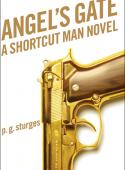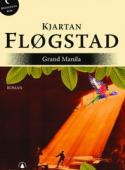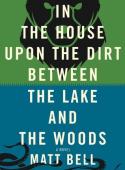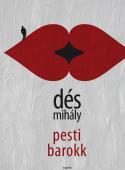

Nasza reprezentacja poszerzyła się o nową agencję Susan Bergholz Literary Services ze świetnymi autorami z USA i Ameryki Centralnej oraz antypodów.
W katalogu znajdują się m.in.:
*******************
Osoby zainteresowane pełną listą reprezentacji proszone są o kontakt w sprawie katalogu z Justyną Czechowską pod adresem justyna@literatura.com.pl

Michael Connelly widzi w autorze ANGEL'S GATE godnego następcę Chandlera. Zapraszamy do zamawiania maszynopisów u agenta!
“This book is a blast! Wry, mysterious and, most of all, telling in the ways of desire and deception, Shortcut Man is one hell of a debut. p.g. sturges has proved himself a worthy successor to Chandler.”
--Michael Connelly
Sturges’ SHORCUT MAN sold for translation into French (Calmann-Levy) and Italian (Edizioni BD), and the follow up TRIBULATIONS OF THE SHORT CUT MAN sold also to Calmann-Levy.
This is another rousing tale of sex, sleaze, and salvation in the City of Angels, featuring Dick Henry, the Shortcut Man.
In Angel's Gate our hero Dick Henry is drawn into a case involving an aging but still amorous Los Angeles movie mogul named Howard Hogue who keeps a stable of twenty-plus young starlets available for his highly ritualized attentions. Henry is retained by the sister of a young woman who has gone missing and soon Henry is becoming friendly with Connie Cielo, the “housemother” to the starlets. Despite Connie’s morally questionable responsibilities, she is willing to help (and enjoy the company of) The Shortcut Man. After Hogue’s star director batters one of these women in a drug-fueled romp, Henry is drawn into a deeper mystery from years past involving a mysterious death on a boat and a missing screenplay written by what appears to be a homeless man. As he peels back layer upon layer of sordid Hollywood history, Dick Henry must content with crazed drug dealers, Hague’s personal doctor, crooked cops, private security henchmen, and Hague himself, who is so powerful and bunkered in his movie-biz millions that he is not intimidated by the resourceful Henry. Is there a final showdown? Yes. Is there a climactic scene? Yes! Is there a sneaky last plot twist? Of course! Will the Shortcut man succeed to live another day? How could he not?
Key Selling Points:
* Widespread praise for first and second book: From the great pre-pub blurb from Michael Connelly to the rave reviews from the Washington Post (“an assured and diverting performance”) and the Associated Press, who called it a “glorious read,” all the attention for Shortcut Man has been outstanding.
* Extensive LA Times profile: David Ulin, book critic and former editor of the LA Times book section has profiled Preston in a lengthy piece that touches on Preston’s interesting back story in Hollywood.
* Award nominee: The Shortcut Man has been nominated for a 2012 Shamus Awards from the Private Eye Writers of America for best first P1 novel.
* There ain’t no noir like LA noir: Publishers Weekly was already craving the second book by the time they finished reviewing the first one. And Sturges doesn’t disappoint in his third outing. Several of the side characters of the second book reappear, and Dick Henry is once again doing battle against sleazy con-men, using back-channel and semi-legal means.
p.g.sturges was born in Hollywood, California. Punctuated by fitful intervals of school, he has subsequently occupied himself as a submarine sailor, a Christmas tree farmer, a dimension and optical metrologist, a writer, and a musician.
Praise for “Shortcut Man”:
“Shortcut Man is a glorious read: powerful, clever, suspenseful and filled with enough dark humor and shady characters to satisfy the most rabid noir fan, and convert those who aren’t already.”
--Associated Press
“This is an assured and diverting performance, with an ending that should impress even the most seasoned fan of hardboiled detective stories. You thought every twist ending in the noir bag had been taken out and used up, p.g. sturges seems to be saying as the book rushes toward its final page. Well, get a load of this.”
-- Washington Post
“I was hooked on his quirky characters and original plot turns. By the spectacularly unexpected conclusion, I was floored. Now I can hardly wait for the second installment. . . Mr. Sturges’ writing is flip and hip, influenced by a line of predecessors from Raymond Chandler to Elmore Leonard, but the unconventional writer adds a sassy cynicism of his own.”
--Pittsburgh Post-Gazette
“A rollicking new LA crime novel. . . . A well-paced and suspenseful damn good read, full of deft observations, honest sentiment, and screwball touches that would make his father proud.”
--Los Angeles Review of Books
“An evocative Raymond Chandler spin through crime-haunted Los Angeles . . . The writing is a pleasure to read. More Southern California shortcutting, please, Mr. Sturges.”
--Publishers Weekly
“This book is a blast! Wry, mysterious and, most of all, telling in the ways of desire and deception, Shortcut Man is one hell of a debut. p.g. sturges has proved himself a worthy successor to Chandler.”
--Michael Connelly
“p.g. sturges is, simply put, one of the cleverest and funniest new writers to grace the mystery genre in quite some time.”
--Bookpage.com
*************
Osoby zainteresowane materiałami recenzenckimi (maszynopis dostępny) proszone są o kontakt z Justyną Czechowską pod adresem justyna@literatura.com.pl

Przypominamy, że do 1 kwietnia można się starać o dofinansowanie na tłumaczenia z języka norweskiego. Czemu nie Kjartan Fløgstad?
Jest jeszcze czas, by rozważyć zakup praw do książek jednego z najwybitniejszych współczesnych norweskich pisarzy - Kjartana Fløgstada (Grense Jakobselv i wydana niedawno we Francji Grand Manila)
O pierwszej z książek:
Grense Jakobselv
The wanderer and his shadow, the man of action and the opportunist. In the early 1930´s two well-educated young Germans make a decision that leads them to Oslo´s infamous Gestapo headquarters at Victoria terrasse, to Grense Jacob´s River, and further, across the border. And later across all borders, into a state where they become champions over life and death.
World War II finishes and evolves into the Cold War. Even in the blur of war there always exists a demarcation between good and bad. Does that demarcation still follow the same lines today? Horrified by the atrocities committed by the preceding generation, a young Norwegian tries to do
the right thing by abiding by laws and rules. Will he still end up committing an injustice?
Crossing the River Jacob is a novel about power and ideology, about what the war changed and what remained unchanged.
Informacja o drugim tytule, który odniósł ostatnio sukces we Francji:
Grand Manilla
Grand Manila is a tremendous literary journey - tremendous in its scope and breadth of vision as well as in its clarity of insight.
The story begins in the 1950s with the lives of five families in Sauda, a small town in West Norway. From here the book sweeps the world, travelling back and forth in time and through generations, back to the Finnish Civil War, through the Kanawha Valley in West Virginia, to Bhopal in the Indian State of Madhya Pradesh, through the entire Norwegian post-war era and across Oslo's Ekeberg Fields, back to Sauda and the Grand Manila Café. As things always seem to, the story reaches its finale in a semi-detached house on the outskirts of town.
This is one of the most ambitious, insightful and powerfully constructed novels to be published by Gyldendal in 2006.
Reviews:
"A superb reading experience for all those who find themselves as much in awe of literary sensitivity as elegance in composition."
Sindre Hovdenakk, VG
"More perfectly formulated and effortless than any Floegstad novel since Fyr og flamme (Fire and Flame). An adventure of a book – an epic of a calibre rarely written in this country."
Fredrik Wandrup, Dagbladet
"Kjartan Floegstad’s Grand Manila is a perfect novel of entertainment with almost indescribable literary qualities. And it’s very funny. Mustn’t forget that. It is an incredibly enjoyable experience to read Kjartan Floegstad’s Grand Manila. Everyone in the whole world deserves to read it."
Trond Haugen, Dagsavisen
"In a stunningly beautiful and effective narrative construction, insights arrive like prolonged roars throughout the text. Floegstad caters for both the general public and the avant-garde of readers, and does it penetratingly and effectively. It thrills me that it is possible to write as beautifully as Floegstad does."
Tom Egil Hverven, Klassekampen
"It is possible to write fiction that is truer than experience. Grand Manila is a consistently good novel, versatile, resourceful and with an incredibly rich language."
Hans H. Skei, Aftenposten
"Floegstad has set out to write an ambitious novel about industry, capitalism, individuality and destiny, and has succeeded."
Odd W. Surén, Dag og Tid
Enthusiasm for Kjartan Fløgstad in France
Fløgstad-Grand Manila-exerpts(pdf, 38.60 kB)
***********
Osoby zainteresowane tytułami proszone są o kontakt z Justyną Czechowską pod adresem justyna@literatura.com.pl

This novel, from one of our most exciting young writers, is a powerful exploration of the limits of parenthood and marriage...
In this epic, mythical debut novel, a newly-wed couple escapes the busy confusion of their homeland for a distant and almost-uninhabited lakeshore. They plan to live there simply, to fish the lake, to trap the nearby woods, and build a house upon the dirt between where they can raise a family. But as their every pregnancy fails, the child-obsessed husband begins to rage at this new world: the song-spun objects somehow created by his wife’s beautiful singing voice, the giant and sentient bear that rules the beasts of the woods, the second moon weighing down the fabric of their starless sky, and the labyrinth of memory dug into the earth beneath their house.
This novel, from one of our most exciting young writers, is a powerful exploration of the limits of parenthood and marriage—and of what happens when a marriage’s success is measured solely by the children it produces, or else the sorrow that marks their absence.
Praise for IN THE HOUSE UPON THE DIRT BETWEEN THE LAKE AND THE WOODS:
Starred Review “Bell puts the fable in fabulism… This spare, devastating novel… is as beautiful as it is ruinous. A tragedy of fantastic proportions, the book’s musical, often idiosyncratic prose will carry its readers into an unfamiliar but unforgettable world.” — Library Journal
“This debut novel from up-and-coming Bell…is a dark, intriguingly odd fable about what it means to be a father…The carefully wrought prose takes its cues from magical realism…to furnish their rustic abode…This challenging, boldly experimental attempt at myth-building may resonate with equally ambitious readers…” – Publisher’s Weekly
“IN THE HOUSE UPON THE DIRT BETWEEN THE LAKE AND THE WOODS is a big, slinking, dangerous fairy tale, the kind with gleaming fangs and blood around the muzzle and a powerful heart you can hear thumping from miles away. The story's ferocity is matched by Matt Bell's glorious sentences: sinuous and darkly magical, they are taproots of the strange.” — Lauren Groff, author of ARCADIA
**********
W sprawie materiałów recenzenckich należy kontaktować się z Agatą Żabowską pod adresem agata@literatura.com.pl

Zapraszamy do zamawiania materiałów recenzenckich powieści Mihály'ego Désa.
It does not happen too often that leading publishing houses compete for the first novel of a Hungarian author, that the most prestigious literary magazines publish chapters of it and that there is an international interest towards it even before the book is published. It is doubly unlikely that such a promising beginner is in his sixties. And what is even more unusual is that the author returns to his mother tongue after being away from it for a quarter of a century.
However, this is precisely what happened with the novel Budapest Baroque, which is indeed the first novel of Mihály Dés, who truly is 63 years old and has actually been living abroad since 1986.
Not only are the circumstances of this debut unique, but also the book itself. That is something to which all primal readers (publishers, editors, critics...) agree. What they don’t quite agree on is what the book is all about, although unlike many modern novels, it is easy to describe the topic of this book.
The story takes place in Budapest in 1984. The main character is a loafing and flighty intellectual, planning to emigrate to the USA. The book recounts his love, intellectual, family, social and societal affairs, but its complex and eventful plot offers such a great variety of readings that one interprets it as a Don Juan parody – a humorous epic of desire and seduction; another as a chronicle of a generation, a tableau of an intellectual subculture - a lá Kerouac’s On the Road. There are some who see a post-modern historical novel in it; others a grotesque Bildungsroman, or even a metaphor of failure: a personal, a generational, and a societal failure; and there are yet others who perceive it as a pseudo roman á clef – but in the end no key fits in the lock, despite the reader being given a whole handful of keys.
Each chapter is written in a different genre or from a different angle. One may encounter a micro-realistic love scene, gallant episodes following the traditions of oriental tales, a family novel extract, a traditional short story, a joke anthology, psychoanalytic confession, reports (informer, editorial, company…), a theatrical comedy scene in a cemetery, sexual, family and public crime stories, a movie script, journalism, essay, diary, epistolary novel, apocalyptic vision…
The baroque counterpoints of complementary and refuting elements evoke an ambitious meta-literary exercise in style –and they do that for a good reason. But that is rather a hidden dimension of the novel. What the reader actually gets is a hilarious, overwhelming and touching book, in which the technical variation of each chapter mingles with unexpected turns of the screw and new approaches to the plot.
Dés' book has nothing to do with magical realism, yet it still recalls One Hundred Years of Solitude in a sense that a sophisticated narrative machine can also become a popular novel.
The main (or the most attractive) virtue of Budapest Baroque is that it can be simultaneously comic and dead serious, moving and cynical, obscene and poetic, manifestly sensual and ironically intellectual...
The humour of the book – based on the main character's voice – is reminiscent of the neurotic humour of Woody Allen, Philip Roth and Italo Svevo, only combined with Rabelaisian hedonism and vitality. And if we approach it from the ‘failure’ motif, we find a striking, Dionysian failure.
“Never has any generation on Earth had such a good time feeling bad as we did”, says one of the characters in Budapest Baroque, and undoubtedly the bizarre duality of anguish and vitality is what best characterizes this remarkable book.
REVIEWS:
Budapest house parties in the mid-eighties, love affairs, conquests, betrayals, myths of friendship, dirty laundry of a middle class family... Like a literary costume ball, Dés’ brilliant first novel is a thrilling encounter of diverse genres. The wit of the book also runs on various levels: heavy humor, ironic quotes, political jokes, grotesque scenes and literary parodies. As it is not a generational novel, readers of any age can enjoy it!
János Szegő, editor of the publishing house
Dolce vita behind the Iron Curtain… Love affairs, friendships, betrayals… Vibrant storytelling, diverse styles, intense characters, lives and destinies in Budapest of the eighties. Highly entertaining both for those who experienced all that and who just heard about those times.
ÉvaKarádi, Hungarian Lettre International(quarterly)
An excellent postmodern development and historical novel.
FerencMező, Mozgóvilág (monthly)
Brilliantly built novel based on unexpected counterpoints about our collective myths embodied in individual destinies. Impossible to put down!
Kalman Barsy, Argentine - Puerto Rican writer
The most humorous and sensual contemporary novel I have ever read.
EszterVadnai, publishing house reader
Cutting profane content playing with a limitless structure. A story starting with an epiphany and - through plenty of absorbing picaresque adventures – ending in an Apocalypse... The narrator fails and his story represents the failure of a generation. But the story of this failure turns out to be much more than a roman à clef: a great book that forever captures a state of being.
ImreBarna, director of Európa publishing house
**********
Osoby zainteresowane tytułem prosimy o kontakt z Justyną Czechowską pod adresem justyna@literatura.com.pl
